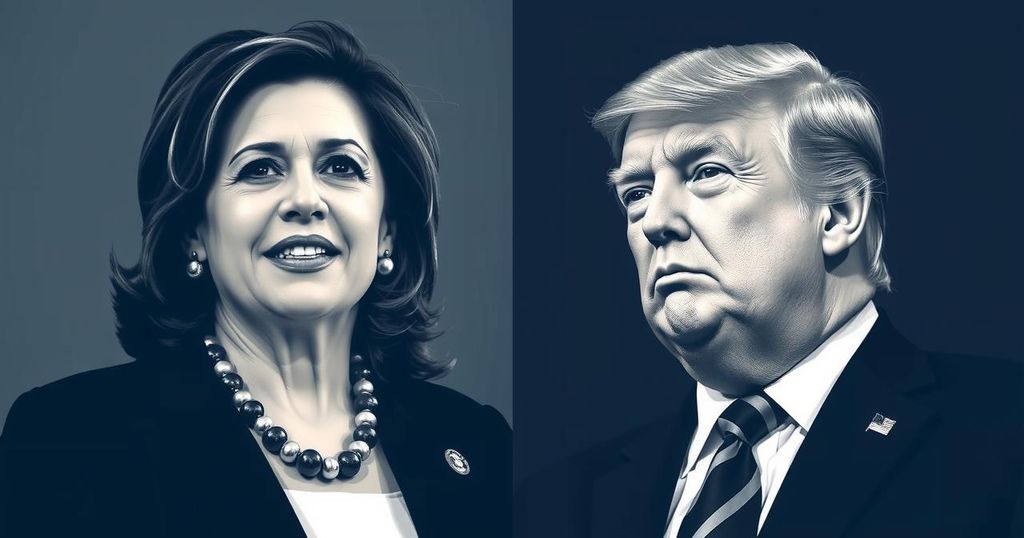International relations experts predict significant differences between Vice President Kamala Harris and former President Donald Trump regarding foreign policy. Harris is expected to manage global issues more effectively and promote U.S. cooperation with other countries, as opposed to Trump’s more isolationist tendencies. Key areas of divergence include climate policy, military aid, and international agreements, with a vast majority of scholars expressing greater confidence in Harris’s leadership abilities.
International relations (IR) scholars have identified striking contrasts between Vice President Kamala Harris and former President Donald Trump regarding their potential foreign policy approaches if elected. A recent survey conducted by the Teaching, Research, and International Policy Project at William & Mary highlights these differences, revealing that experts overwhelmingly trust Harris to manage U.S. foreign policy over Trump. According to the survey results, scholars perceive a vast divide in the candidates’ positions on critical issues, such as climate change, NATO membership, trade, and foreign aid. For instance, experts predict an 80% chance that the U.S. would withdraw from the Paris Agreement under a Trump administration compared to a mere 4% under Harris. Furthermore, when it comes to military aid, there is a notable expectation that Harris would increase support for Ukraine and diminish military assistance to Israel relative to Trump, who is anticipated to bolster military aid to Israel significantly. Despite the perceived differences on various foreign policy fronts, experts believe that the election’s outcome will have less influence on U.S. use of military force in conflicts involving the Middle East, Ukraine, or Taiwan. Yet, in terms of leadership capabilities, a significant 92% of surveyed scholars express confidence in Harris’s effectiveness in managing foreign policy issues, as opposed to only 8% for Trump. This sentiment is shared even among a minority of Republican experts, indicating a broad consensus on Harris’s superior diplomatic competence. Ultimately, the findings suggest a consistent belief among IR scholars in the profound impact of the 2024 election results on U.S. foreign policy direction and global engagement, signifying a pivotal choice for voters.
The analysis stems from a survey of 705 international relations experts conducted in mid-October regarding the implications of the upcoming 2024 U.S. presidential election on foreign policy. With voter decisions set to shape America’s global role, the study provides insights into how these candidates are expected to approach international governance, military aid, and diplomatic relations.
In conclusion, international relations experts foresee significant disparities between Kamala Harris and Donald Trump regarding their foreign policy strategies and effectiveness. The overwhelming support for Harris among scholars suggests a consensus that her leadership would foster greater international cooperation and a more constructive U.S. role on the global stage. As the election approaches, these predictions underscore the critical importance of the voter choices on November 5, which will likely shape the trajectory of U.S. foreign policy for years to come.
Original Source: foreignpolicy.com






